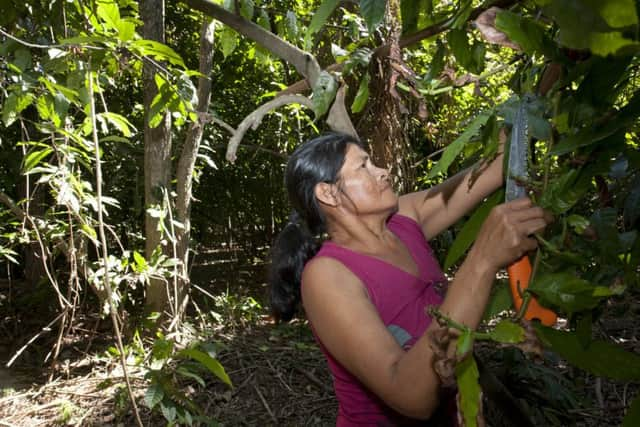Scots charity helps Bolivian community get more out of cacao


The cacao that grows wild in Bolivia’s rainforests has a unique aroma and taste that is in high demand from chocolate connoisseurs.
The fruit of these native trees has long been a staple in the local diet but now it is offering a crucial lifeline for families struggling to survive in some of the country’s most inaccessible regions.
Advertisement
Hide AdAdvertisement
Hide AdThe forests of the Amazon are rich in natural resources and biodiversity, yet life for most native peoples is tough and dogged by inequalities.
Survival has been getting harder as a result of increasingly extreme weather conditions caused by climate change and the threat of loggers and cattle ranchers.
Now a new initiative supported by a Scottish charity is giving producers in the Beni region, in the north-east of the country, control over their own communities. The move has seen family income rise by nearly 12 per cent in recent years.
With support from Christian Aid Scotland, workers from Bolivia’s Centre for the Advancement and Training of Peasant Farmers (CIPCA) have been helping Moxeño and Trinitario indigenous communities make the most of the native cacao trees that thrive deep in their rainforest.
CIPCA’s Olver Vaca Ruiz has been in the Scottish capital this week, reporting first-hand on the benefits of this pioneering scheme.
“These communities have always had the resource”, he said. “It’s a basic staple for the family diet. Before, the price they were paid for cacao was too low. There were too many intermediaries. The people were being cheated and middlemen reaped all the benefits. Communities were being swindled.”
The first step was to set up an organisation to represent local producers, giving them power to demand a decent price for their harvest. Next they build their own chocolate factory, where the beans are processed to make 100 per cent pure, organic chocolate bars that can be sold on to the confectionary market.
Villagers have also begun replanting the cacao forests, removing dead and diseased specimens and applying organic fertilisers. As part of the project families have also been encouraged to take on sheep, poultry and fish to provide an extra income source.
Advertisement
Hide AdAdvertisement
Hide AdCrispin Longden, of Christian Aid Scotland, said: “Christian Aid was instrumental in establishing fair trade for chocolate producers in Africa, so that experience gave us the tools to provide support for this plan.
“Supporters here in Scotland have helped these indigenous families in the Bolivian Amazon achieve their dream of regaining the rainforest and commercialising wild cacao.”